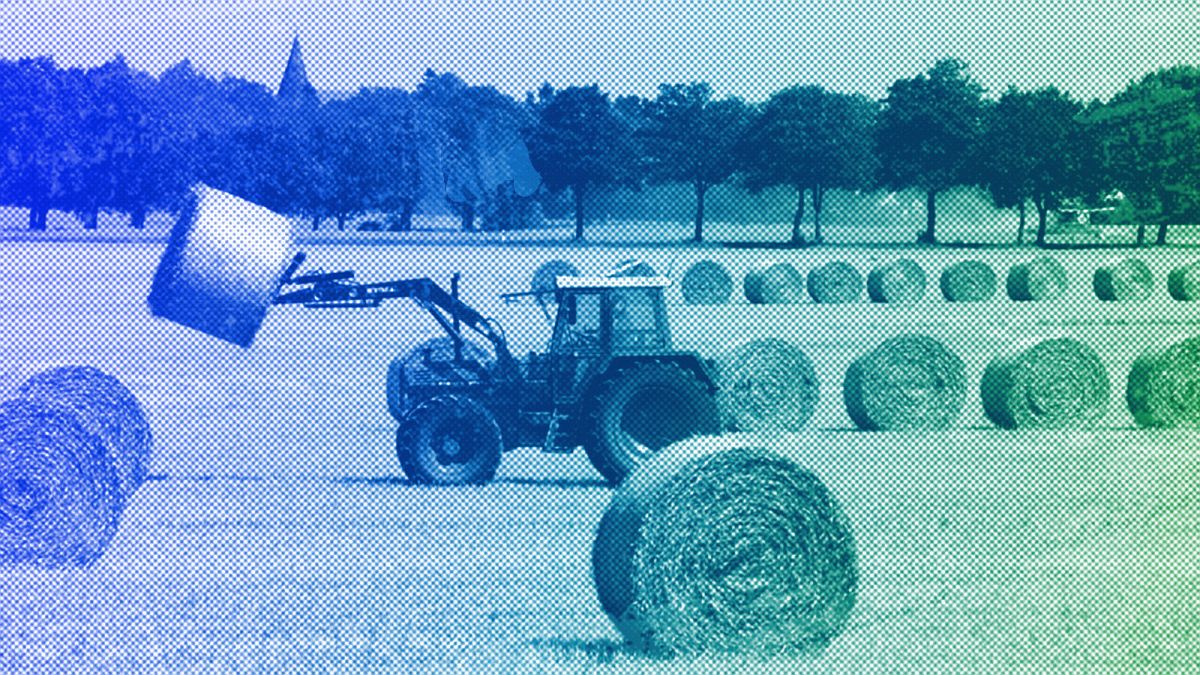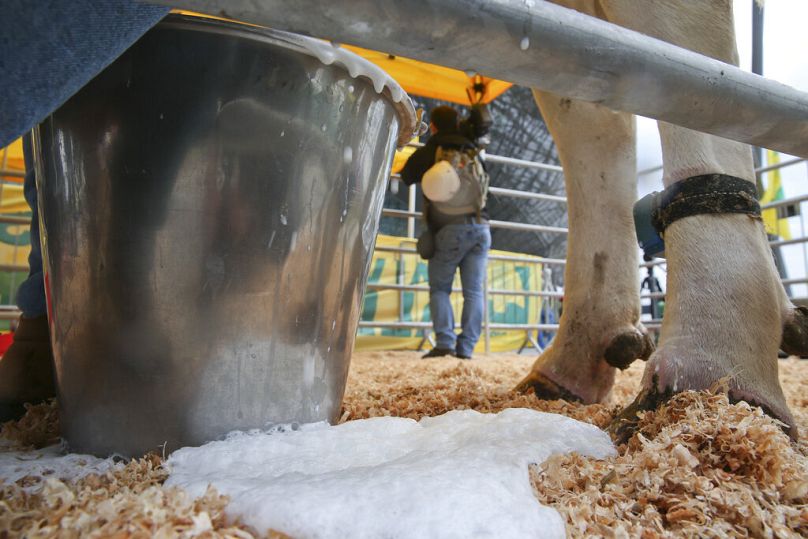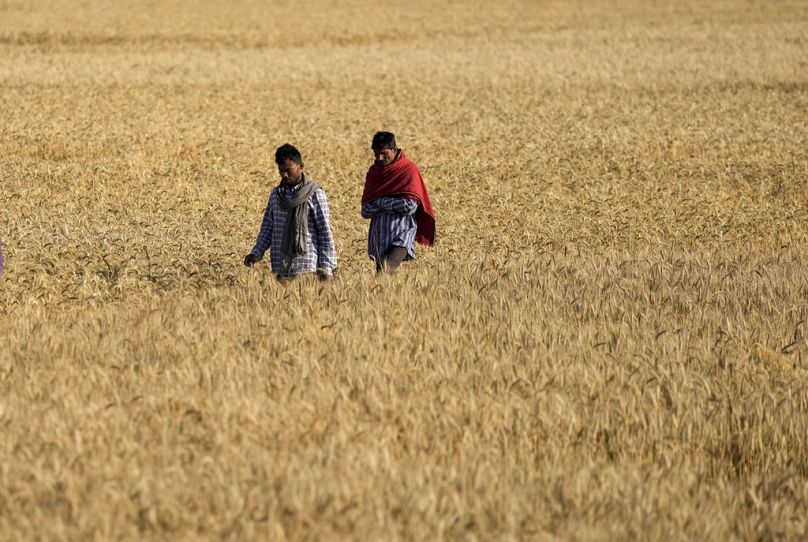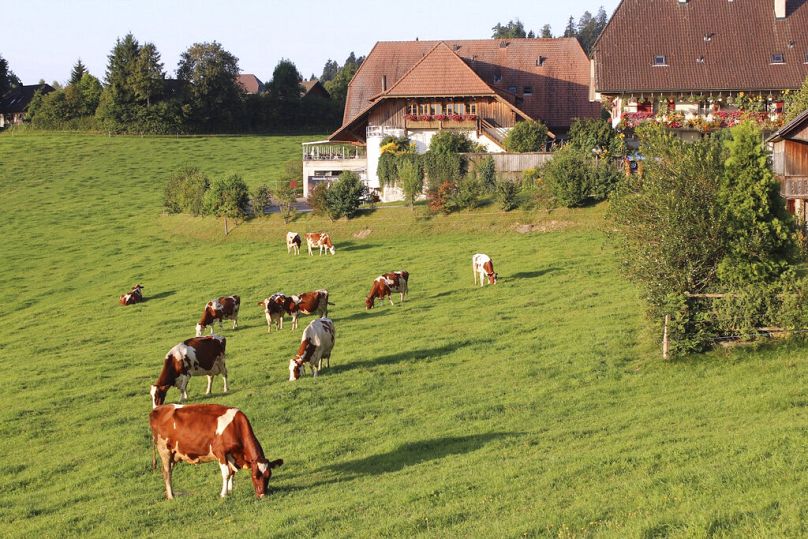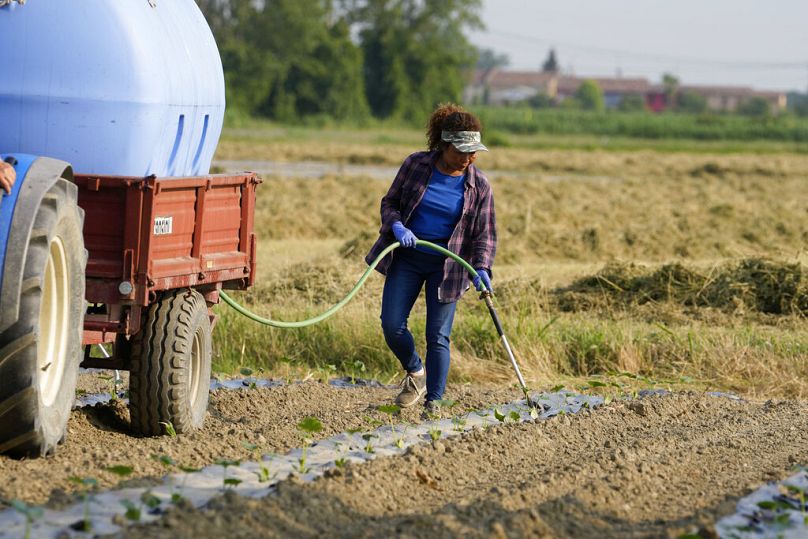Like all food companies, Danone and Nestlé are heavily reliant on nature and its well-being to procure our agricultural raw materials. When nature suffers, our supply chain is strained, Facundo Etchebehere and Bart Vandewaetere write.
Nature restoration and food security are not opposites — in fact, they are interdependent.
Globally, 26% of the total damage and losses from climate-related disasters affect the agricultural sector directly, according to a study by the World Resources Institute.
This is why, as companies whose bottom lines depend on nature, we are deeply concerned that the EU’s Nature Restoration Law was rejected by the European Parliament's ENVI committee last month.
A significant step in the right direction
The European Commission’s proposed nature Restoration Law would be a significant step in the right direction.
This law is a comprehensive strategy aiming to restore degraded ecosystems across the continent, with specific targets set for restoring habitats that are particularly suited for carbon capture and enhancing resilience to natural disasters.
For companies like Nestlé and Danone, and the farmers who supply us, this legislation could mean a shift towards more sustainable practices that contribute to ecosystem restoration and climate change mitigation, thereby ensuring the sustainability and resilience of supply chains.
And the Nature Restoration Law gives us a critical opportunity for the entire food production sector to move in this direction, farmers and corporations alike.
Farmers and food and drinks producers are at the frontline of the climate and biodiversity crisis.
Milk production, for instance, is already feeling the severe impact of climate change: dairy cows have difficulties with extreme heat, and higher temperatures often lead to lower yields.
Climate events and heat also impact the grass and crops on which cows depend: in 2022, in Italy, water shortages and drought led to a drop of as much as 45% in corn and animal feed yields.
Dairy farmers in France faced similar challenges maintaining milk production as temperatures soared and pastures were scorched.
Europe is not impervious to food price hike shocks
Like all food companies, we are heavily reliant on nature and its well-being for the procurement of our agricultural raw materials. When nature suffers, our supply chain is strained.
In June last year, wheat and maize prices had shot up by 42% and 47%, respectively, compared to January 2021, partly due to weather shocks related to climate change and a heatwave in India, which caused a drop in wheat yields, leading to an export ban by the world’s second-largest producer.
While prices have returned to normal levels since, the sharp increases were a clear sign of how unstable our world is now.
Europe is not protected from similar shocks: a study by the University of Edinburgh showed that Southern Europe could see a drop of more than 50% in production yields in higher warming climate scenarios.
The droughts faced by Spain are showing us what that might look like.
If you're worried about the farmers, then you know regenerative agriculture is the answer
These are collective challenges we are facing, and regenerative agriculture offers a practical solution.
By incorporating practices like intercropping, crop rotations, hedgerows, and reduced pesticide use, we can restore soil health, increase biodiversity, and decrease greenhouse gas emissions.
These practices benefit not only nature and our businesses but also farmers — as shown by an analysis of the economics of German farms where regenerative agriculture resulted in higher profits in the medium and long term.
This brings us back to the urgent need for the European Parliament to approve the Nature Restoration Law and the need to emphasise that this law is not just for the environment or the businesses that depend on it, but crucially, for the farmers whose livelihoods are at stake.
The question we should be focusing on is not if we fix objectives to restore nature and mitigate climate change, but rather how we can join forces across public and private sectors to achieve them.
We can't keep closing our eyes to the truth
And this means focusing on transition finance, which will need to be further developed in the next stage of the discussions.
An analysis from the European Investment Bank estimated that, in 2020, the financing gap for agriculture was between €19.8 and €46.6 billion, while the gap for the agri-food industry was at more than €12.8bn.
We need to work hand-in-hand to develop transition finance solutions that give farmers the support they need to lead on regenerative agriculture.
The facts are clear: nature restoration does not undermine food security; rather, it enhances it.
Rather than allowing the discussion to be polarised, we must join forces to build a future that benefits all — farmers, businesses, consumers, and our planet.
We can start now with the Nature Restoration Law, or keep pretending that the risks of a depleted planet are not already apparent.
Facundo Etchebehere is Danone’s Senior Vice President of Sustainability Strategy & Partnerships, and Bart Vandewaetere is Vice President of Environmental, Social and Governance Engagement for Europe at Nestlé.
At Euronews, we believe all views matter. Contact us at view@euronews.com to send pitches or submissions and be part of the conversation.
